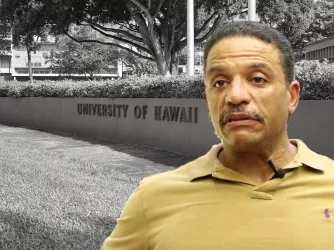Table of Contents
The 'Chilling Effect' in Action: Campus Speech Codes and Political Disengagement

By one measure, millennials are the United States’ least politically engaged generation, with voter turnout rates 20–30 percent lower than other age groups. And within that age 18–30 population, individuals between 18 and 24 years of age, or those most likely to be enrolled in college, have the lowest voter turnout rates. While voter participation is not the only indicator of political engagement, it is still a good marker of the relatively low level of political involvement of most American millennials. While there are many proposed explanations for this phenomenon, ranging from their lack of investment in society to their distrust of politicians, we rarely consider whether our colleges are actually guiding students towards a path of political disengagement.
Almost 95 percent of the U.S. colleges and universities evaluated by FIRE have some form of speech code within their student conduct policies and other policy materials, and the relatively widespread acceptance of these policies has quickly permeated the mindset of most students. As a result, too many students are inclined to believe that it is acceptable to hinder the expression of ideas and views with which they disagree. The popularity of this position has particularly troubling effects when it comes to political discourse on campus. Students are dissuaded from discussing unpopular opinions not just from fear of student-driven suppression, but also through an unfamiliarity with how to engage with disagreeable, extreme, or offensive viewpoints. Essentially, the culture of speech suppression on college campuses is continually reducing political engagement as students with varying opinions become less willing to come together and simply discuss their views.
As a leader for Common Sense Action, a national bipartisan political advocacy organization for millennials, at Claremont McKenna College (CMC), I hosted several policy discussions and debates on issues like immigration and criminal justice reform. These are topics that greatly affect our generation, and I know that students hold a wide variety of opinions on possible solutions. Yet the individuals who attended these events were almost exclusively self-identified moderates with similar viewpoints. When I talked to friends and classmates with significantly more liberal or conservative views, I heard several variants of the same rationale for their lack of interest: Both liberals and conservatives were hesitant to join a politically inclusive organization where they would have to face arguments they disagreed with, and they also did not want to take the risk of offending other students.
Surprisingly, none of these individuals expressed any fear of administrative involvement in possibly offensive discussions. These scenarios do not require administrators to enforce speech codes and punish students. Rather, the simple fact that these policies exist and are viewed as appropriate has increased the proportion of students who believe that they have a right not to be offended and therefore avoid situations where someone might offend them.
This inclination to prevent or ignore offensive speech is especially worrisome when it extends to the political discussions for which liberal arts colleges are so exalted. College students tend to have a sense of invincibility and infallibility surrounding our lives, and unfortunately it appears to have pervaded our academic and intellectual pursuits as well. When someone offends us, it must be because we are right and they are wrong. When we disagree with someone, it must be because we are right and they are wrong. And when the response to believing that something is wrong is to immediately shut it down and ignore it, there is little opportunity for political engagement and the accompanying intellectual progress.
In one sense, it is good to be offended by something; it means you have strongly held beliefs that you care about. But ignoring offensive speech is not an effective response when it simply ends the discussion. Being offended is a call for passion, an impetus to reflect on why you are offended and engage in further discussion to understand a variety of views and their relation to your own beliefs. I’m reminded of a situation at CMC where a professor was giving a talk, and a number of students organized and spoke out beforehand against any validation of his research, which did not support race-based affirmative action practices. I talked to several of these students afterwards and they were surprised to hear that his talk focused on the benefits of socioeconomic-based affirmative action combined with increased institutional support for students of color and low-income students, an argument that they, at the very least, were quite interested in hearing.
When we limit our political involvement to interactions with those we already agree with, we deprive ourselves of the opportunity to explore and analyze our own beliefs. This failure of students to willingly engage with other views too closely mirrors the mindset behind congressional gridlock that many millennials cite as a reason for their dissatisfaction with politics. Personal and societal progress require engagement with the entirety of our political landscape, especially those who offend or disagree with you.
Many people point to the increasing number of college graduates finding work in civic-minded startups and nonprofits as a sign that millennials are exhibiting their political engagement in other ways. And while it is true that some of these organizations do incredible work to benefit society, I find that these organizations are often simply another method for individuals to self-segregate into enclaves where everyone agrees with each other. When you center your organization around the belief that you have the correct goal and the correct method to reach that goal, it is easier to surround yourself with people who share your vision, instead of those who will challenge and possibly improve it.
In the end, the current culture on college campuses is not to “find smart people with whom you disagree and talk with them,” but to ignore those who might offend you. And until we become more willing to fully engage with all aspects of our society, our generation’s lack of political discourse will continue to hinder effective civic engagement.
Sidd Mandava is a FIRE summer intern.
Recent Articles
FIRE’s award-winning Newsdesk covers the free speech news you need to stay informed.

Mercury in retrograde: How UT Dallas tried to roll back student press rights

Law professor challenges university after campus ‘shooting’ hypothetical changed in lesson plan

Snitch hotlines for ‘offensive’ speech were a nightmare on campus — and now they’re coming to a neighborhood near you
